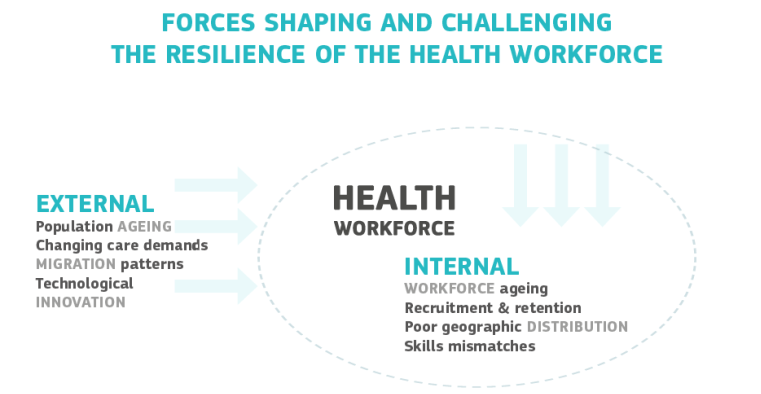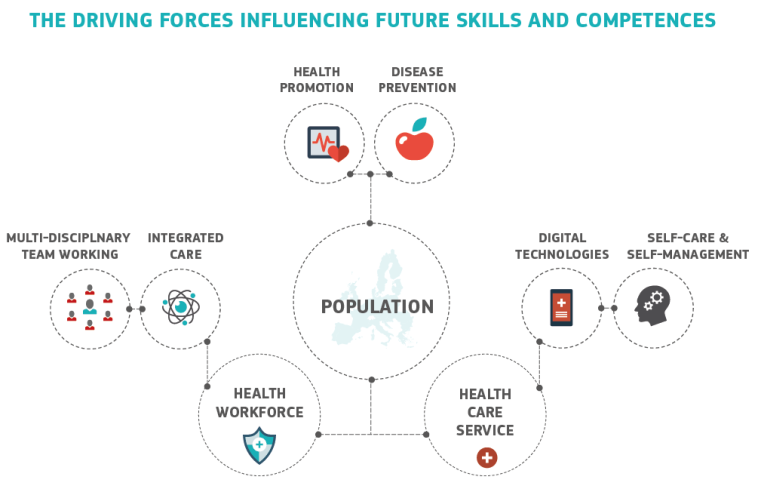
The capacity of health systems to deliver health services and meet the changing demands of care strongly depends on the availability of a workforce with the right skills and flexibility. Health systems that support high levels of initial education and training, as well as consistent investment in continuous professional development, are better equipped to develop innovative and integrated solutions to respond to the major challenges that the EU is facing.

The State of the Health in the EU and its companion report highlight the importance of promoting reforms aimed at tackling critical health workforce issues such as supply, distribution and a traditional skill mix, in order to strengthen prevention, primary care and integrated service delivery.

The European Commission encourages EU-wide activities in health workforce planning and forecasting, so as to support EU countries in applying theory to practice in building national capacities.
Since 2012, it has contributed to addressing the challenges and demands through the following initiatives:
Expertise and knowledge sharing on improving health workforce is to be driven through SEPEN, an expert network on planning and forecasting, the latest action supported by the EU's Health programme.
Building on the previous work of the Joint Action for health workforce planning and forecasting (2013-2016), this action aims to:
The Commission's joint action on workforce planning and forecasting financed under the Health Programme, had 30 associated partners and 34 collaborative partners from 28 European countries working together on advancing the issue.
In order to address these challenges and boost employment, an action plan was drawn up by the European Commission in 2012 to encourage EU countries to work together to: